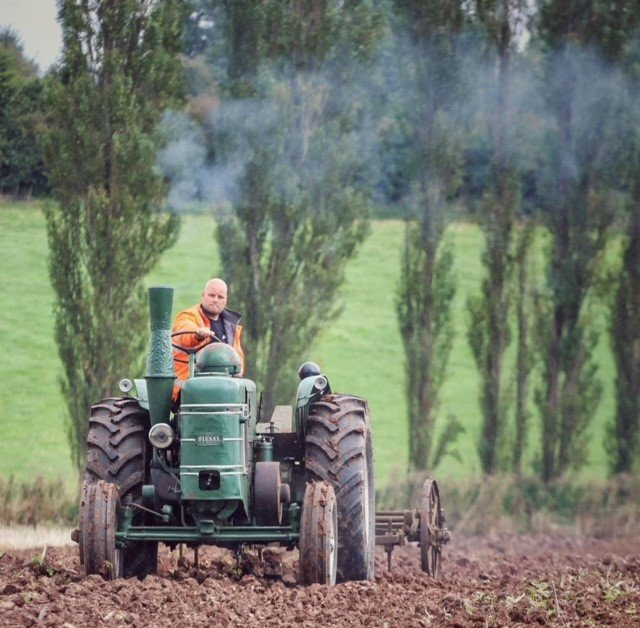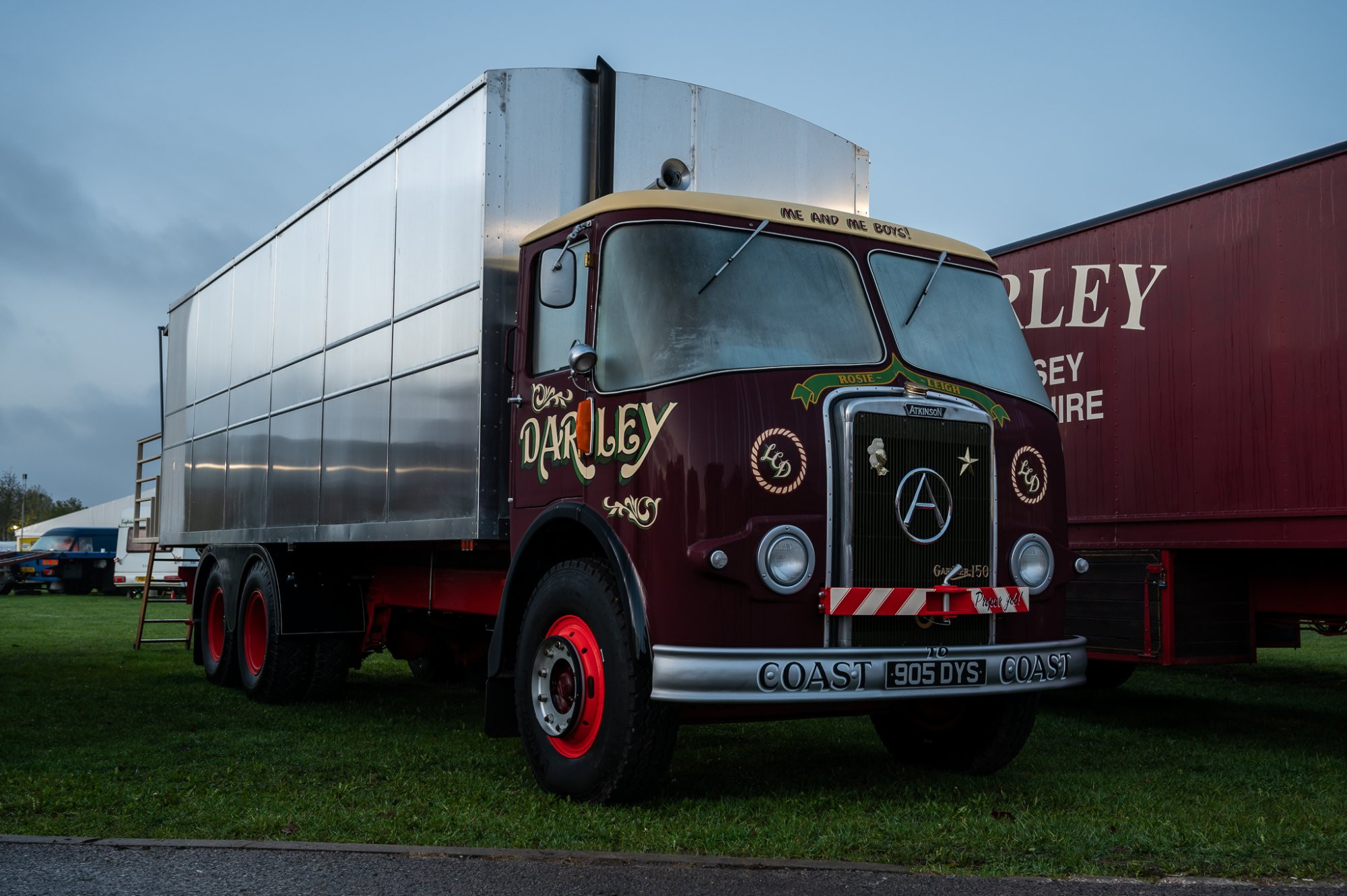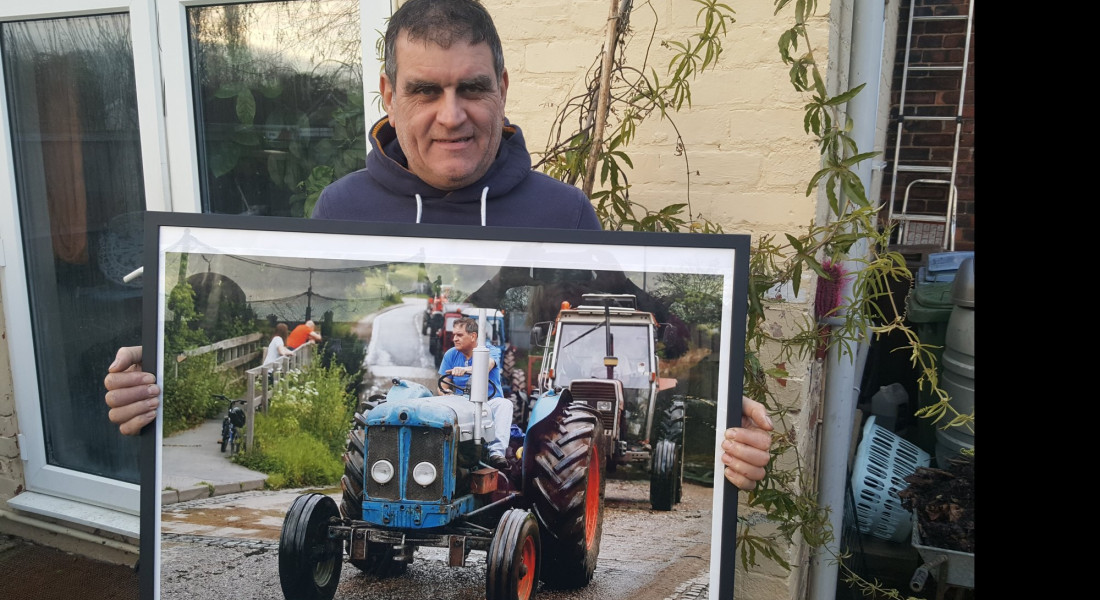As vintage enthusiasts prepare for the Newark Vintage Tractor and Heritage Show, some may be tempted to purchase a project of their own at the auction. So for those ready to start down the restoration path, what should they consider? Michael Duncan, tractor restorer and mechanic, gives his top tips.
1. Look out for original tinwork
“Enthusiasts like tractors with genuine tinwork, in good condition; originality is very important – if I had to choose, I would rather buy something with good tinwork even if the engine doesn’t run. But I would rather a good engine if the tractor has rotted and rusted through, or the tinwork is missing - although reproduction tinwork has improved over the years,” he says.
2. Don’t be frightened if it doesn’t run
It is good to buy a tractor that runs well; check for engine back pressure and the breather pipe, which can indicate a worn engine. Although purchasers shouldn’t be put off if the tractor doesn’t run, check there aren’t any hidden problems. “For the Massey Ferguson 35 and 135, as well as the Fordson Dexta, check behind the injection pump for frost damage.”
It’s also important to check the parts match up. “The tractors I generally work with are Ford and Fordson, and they have codes on the castings, which say the day, month and year of manufacture. The gearbox, backend, engine, cylinder head and other castings are coded,” says Mr Duncan.
“So if it’s a genuine tractor everything would match up, although parts of it might have sat for a month or so before assembly in the factory – but most of the castings would have been made within a few days of each other.”
Hydraulics are a common stumbling block. “It’s quite common on some Fords, Fordson Super Majors and Dextas that the hydraulics have stopped working, if the tractor has not been in use. It’s usually quite a simple fix like a stuck valve; people might think it’s going to be an expensive repair, but not necessarily.”
3. Get familiar with the tractor but exercise caution
Check the brakes, water and oil levels throughout the tractor, he advises. “Don’t be too quick to drain the oil, it’s good to run the tractor first if possible and check for leaks, as well as brakes and hydraulics.
“Safety is paramount. Make sure the handbrake or parking brake are working; commonly people will start the tractor while standing beside it – but it’s best to be sitting in the seat,” he warns. “Make sure the tractor is out of gear, with the brake on, as a lot of older tractors start in gear, which can be dangerous.
“Ensure the PTO is disengaged, if it can be, and that there’s a guard on it. Some Massey Fergusons and Fords are known to have issues, where the PTO shafts won’t stop, even when they’re disengaged – which can be dangerous as well as expensive to repair.”
4. Don’t take it to pieces unnecessarily
If it has an oil leak, repair the leak, says Mr Duncan. “It doesn’t mean you have to completely overhaul the engine; sometimes people pull the engine, gearbox and backend to pieces when they don’t need to, then cause themselves a lot of unnecessary work and expense.
“If the engine needs an overhaul then get the job done well; some makes and models are easier than others. Some have wet liners, like the Fordson Major and Nuffield range, which means you can pull the liners and fit new ones without going to an engine machinist. Some engines with dry liners need to be stripped down and sent to the machinist for a rebore, which is more expensive,” he adds.
“Some old tractors’ backends and gearboxes often go on for years and years. They might need new seals or bearings, but they’re made of good stuff. The British-made tractors, generally speaking - unless they’ve had a lot of neglect - are tough as old boots. The Fordson Major has the transmission hand brake which, if looked after, will last a lifetime, but if it has been driven with the brake on, this can cause damage.”
5. Do a bit at a time
To fully restore a tractor is to get it back near to the condition when it came out of the factory. “Some people buy a vintage tractor and don’t do anything to it at all, but I think it is good to repair it when you have the time and money to do so. But sort out the mechanical problems before painting it,” says Mr Duncan.
“It’s good to do a bit of the tractor at a time and not completely strip everything down all at once. Always take photos of your tractor before strip down. If you are taking the engine apart, it’s good to check the timing gears and make sure that all the timing marks line up before taking them off. I have occasionally seen one of the gears a tooth out on the timing, so it’s good to get familiar with that, so when it is time to assemble again you have a little more understanding about setting them to the correct marks.
Mr Duncan will be hosting a workshop on both days of the Show, with a chance for visitors to ask all their burning restoration questions. “The session will cover buying, prices, best models, where to find casting codes, tips on how to repair problems yourself and things to watch out for,” he says.
If you want to get started on a restoration project, the Saturday of the Newark Vintage Tractor and Heritage Show will see an auction, hosted by Brown & Co. “The auction will include vintage tractors, vehicles, implements and spare parts, with viewing taking place at 9am and the auction commencing at 10am,” says Elizabeth Halsall, event manager. “It’s always a crowd pleaser, with plenty on offer to visitors.”
Box: Buddy’s restoration
Nine-year-old Buddy Antcliff has well and truly been bitten by the vintage tractor bug, and together with his grandad Steve Lyne, has painstakingly restored a 1947 David Brown Cropmaster. “His grandad is a fanatic of classic tractors, and ever since Buddy was tiny he has always shown an interest in helping him on the farm and in his workshop,” explains his mother, Rachel Antcliff.
“We don’t really see him at the weekend, as he stays with his grandad from Friday night until Sunday night – they have a very good bond and they do up all sorts of things,” she says.
And excitingly, Buddy was gifted a vintage tractor of his own to restore, from Michael Hart, long-time supporter of the Newark Vintage Tractor and Heritage Show, and friend of Mr Lyne. “Michael had to give up his storage and needed to find a new home for some bits; he knew Buddy was interested in tractors and enjoyed tinkering in the workshop with Grandad, so he donated it,” explains Mrs Antcliff. “Michael is also very conscious about supporting and encouraging the next generation of tractor restorers.
“That was last year; they went to collect it from his farm and Buddy has been painstakingly taking it apart and putting it back together. It didn’t run at all, so they have stripped it down to the bare bones. He had the tyres for his Christmas present, and now it runs and can be driven.”
Buddy’s efforts will be on show at the Newark Vintage Tractor and Heritage Show this year. “He has also just joined the David Brown Tractor Club, and hopes to be able to join their stand at the show,” says Mrs Antcliff. “He is also planning to display pictures from the restoration, from finding it in the field to the finished product.”
And he’s already onto his next project. “He has been given two Wheel Horse tractors, and he plans to make one good one, out of the two, so he’s in the process of stripping those down.”
For a limited time only, discounted tickets are available for the Newark Vintage Tractor and Heritage Show, on 4-5 November at Newark Showground. Buy tickets here: https://newarkvintagetractorshow.ticketsrv.co.uk/tickets/ or for more information about the show, visit: www.newarkvintagetractorshow.com.
-

09 Oct, 2023
Marshall 175th tracks the history of British farming
-

05 Oct, 2023
90 years of ERF and Atkinson Trucks
-
28 Sep, 2023
Celebrating 75 years of the Land Rover Series 1
